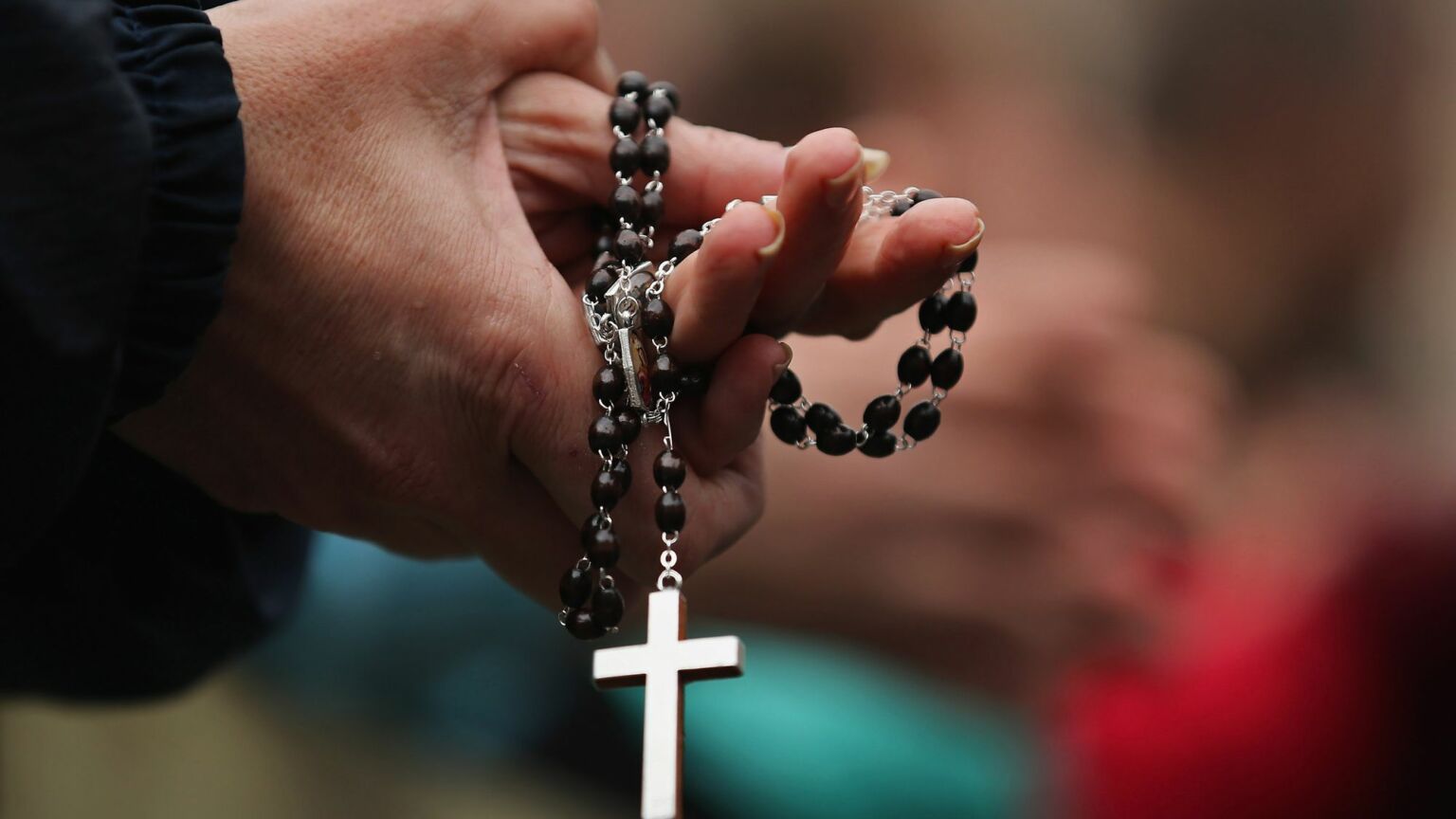Banning ‘conversion therapy’ is a threat to religious freedom
Should it really be a crime for a priest to counsel a parishioner?

Religious freedom is central to the liberal tradition. You don’t even have to be religious to benefit from it. Everyone has the right to believe or disbelieve what they like about life’s meaning, the universe and our place in it. Crucially, everyone also has the right to change their mind about those beliefs.
The campaign to ban LGBT ‘conversion therapy’ in the UK threatens this vital freedom. Various Conservative prime ministers have been promising to ban conversion therapy since 2018. But their proposals have been repeatedly delayed and amended.
Impatient with the government, Liberal Democrat peer Baroness Burt put forward her own private member’s bill, the Conversion Therapy Prohibition (Sexual Orientation and Gender Identity) Bill, back in November. It seeks to ‘prohibit sexual-orientation and gender-identity conversion therapy’. (A similar private member’s bill is also passing through the House of Commons and is due to be debated next month.)
All of these proposals so far have faced harsh criticism – particularly when it comes to so-called trans conversion therapy. When Baroness Burt’s bill was first debated in the Lords, critics rightly pointed out the threat it posed to therapists and counsellors. Mental-health professionals dealing with gender dysphoria would be forced to unconditionally affirm a patient’s view that they were born as the wrong sex. Ahead of the bill’s second reading earlier this month, Burt tried to assure critics that her bill would only ban ‘practices’ involving an ‘assumption’ of a ‘preferable sexual orientation or gender identity’.
This assurance is cold comfort. The Orwellian consequences of the bill stem from the fact that conversion therapy is so ill-defined. If parents affirm their unconditional love for their gay child, but encourage him to remember that sexual orientation is fluid, is that conversion therapy? What if a parishioner speaks to a priest, imam or rabbi, and is advised that their religious tradition recommends prayer and reflection to orient oneself to a ‘preferable’ sexuality? Has a crime been committed here?
Even by the logic of LGBT activists, conversion therapy is a slippery concept. We are continually told that both sexuality and gender are on spectrums. That they are fluid and changeable states. The notion that we can explore or experiment with our sexuality itself implies that we can exercise a degree of agency over it. Besides, it is not uncommon for people to change their minds about their ‘gender identity’, even after receiving gender-reassignment treatments. It is surely common sense that choosing to listen to certain people, or to have certain life experiences, might change our tastes and preferences to some degree.
This is not to defend quack psychological treatments purporting to ‘cure’ people of being gay. These are often offered without evidential basis and are likely to cause mental – or, in some rare cases, physical – harm. Yet if these practices are the ban’s primary targets, activists owe us a better explanation as to why existing regulations against medical malpractice are not sufficient. The term conversion therapy conjures up images of violent homophobic or transphobic torture. But this is already illegal. In any case, there is hardly any solid evidence that significant numbers of LGBT people have been subjected to even the mildest forms of conversion practices.
What, then, is the proposed ban’s real objective? Surely, it is to impose a rigid regime of unconditional affirmation. It is to force therapists, religious leaders and family members to accept a person’s gender or sexual identity, or else face legal consequences.
The ban would undoubtedly hit religious communities the hardest. The Church of England, the Catholic Church and most interpretations of Islam officially hold that leading an active LGBT lifestyle is sinful. How can religious leaders offer pastoral advice in line with their beliefs under the proposed ban? Will the police start spying on confessional boxes to ensure that priests do not – as Baroness Burt’s proposal puts it – engage in ‘spiritual counselling’ intended to ‘change’ a parishioner’s sexual orientation to the church’s ‘preferred’ one?
Of course, if the bill is successful, the consequences are unlikely to be so extreme. But there is shockingly little in the bill itself to categorically rule out the worst-case scenario. It will be up to the courts to interpret what counts as conversion therapy for legal purposes. We should not have to wait for the first cases to be brought to trial before we find out.
If legislation really is needed to ban LGBT conversion therapy, then it needs to be explicit about what exactly is being banned and what is not. Spiritual or secular counselling, if it does not claim medical authority, surely should not be treated as akin to psychological abuse.
No doubt the politicians and activists championing a conversion-therapy ban are well-intentioned. But the consequences of such a ban would be far-reaching and devastating – primarily for the people who simply want what’s best for their patients, parishioners and loved ones.
The right to convert is inseparable from religious freedom more broadly. It must be protected.
Jacob Williams is a postgraduate student, writer, and former editor of No Offence, living in London.
Picture by: Getty.
To enquire about republishing spiked’s content, a right to reply or to request a correction, please contact the managing editor, Viv Regan.









Comments
Want to join the conversation?
Only spiked supporters and patrons, who donate regularly to us, can comment on our articles.